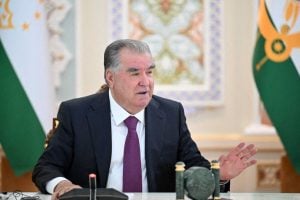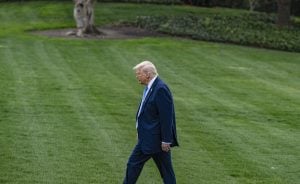Panama has officially announced its withdrawal from China’s Belt and Road Initiative (BRI), marking a significant geopolitical realignment. President José Raúl Mulino’s decision reflects growing tensions between global powers, particularly the United States and China, over the strategic Panama Canal. The move signals a shift in Panama’s foreign policy, focusing on strengthening ties with the U.S. while re-evaluating Chinese investments in the country.
Panama Withdraws From China’s Belt And Road Initiative
Why In News
- Panama has officially announced its withdrawal from China’s Belt and Road Initiative (BRI), marking a significant geopolitical realignment. President José Raúl Mulino’s decision reflects growing tensions between global powers, particularly the United States and China, over the strategic Panama Canal. The move signals a shift in Panama’s foreign policy, focusing on strengthening ties with the U.S. while re-evaluating Chinese investments in the country.
Panama’s Withdrawl
- Since winning the US election in November, President Donald Trump has refused to rule out the use of force to seize the canal built by Washington over a century ago and later handed over to Panama.
- President Donald Trump has repeatedly accused Panama of ceding control of the strategic waterway to China, despite denials from both countries.
- Mulino denied that the US had pushed Panama to make the move to quit the BRI. Rubio, who had threatened action against Panama unless it made immediate changes to reduce Chinese influence on the canal, hailed the announcement as a “great step forward” for bilateral relations.
- Beijing on Friday insisted that it “supports Panama’s sovereignty over the canal”.
“We hope that Panama will make the right decision based on the overall situation of bilateral relations and the long-term interests of the two peoples, and eliminate external interference,” Jian said.
- Around 40 percent of US container traffic passes through the narrow body of water linking the Caribbean Sea with the Pacific Ocean. Beyond the tolls paid, Washington has appeared chiefly concerned about Chinese investment in the 80-kilometre (50-mile) long canal, which handles five percent of global maritime trade. country’s President Jose Raul Mulino confirmed that Panama had pulled out of the Belt and Road Initiative (BRI) infrastructure programme.
- In response, Beijing said it “firmly opposes the US using pressure and coercion to smear and undermine Belt and Road cooperation”.
- “Its achievements have benefited people in countries such as Panama,” Lin said. The BRI is a massive infrastructure project that is a central pillar of Chinese President Xi Jinping’s bid to expand his country’s clout overseas.
- Western critics accuse China of using the BRI to enmesh developing nations in unsustainable debt to exert diplomatic leverage over them or even seize their assets.
Why Did Panama Join The Belt And Road Initiative
- Panama became a part of China’s BRI in 2017 after establishing diplomatic relations with Beijing and cutting ties with Taiwan. The move was expected to enhance trade and infrastructure connectivity between Asia and Latin America. Under this agreement, Chinese companies secured major projects, including the construction of a fourth bridge over the Panama Canal and a third metro line in Panama City.
- Discussions also included a $4.1 billion high-speed rail project connecting Panama to Costa Rica. These projects aimed to boost Panama’s infrastructure and position the country as a key logistics hub in the region.
- However, over time, concerns arose about China’s expanding influence in Panama, particularly regarding its involvement in port operations and logistics near the Panama Canal. The United States, which has historically maintained strong influence over the canal, began urging Panama to reassess its engagement with China.
Panama’s Decision to Withdraw
- United States has been vocal about China’s growing presence in Panama. During a recent visit, U.S. Secretary of State Marco Rubio highlighted the risks posed by Chinese investments in key infrastructure projects.
- He stressed that excessive Chinese involvement could compromise the neutrality of the Panama Canal, a critical trade route that handles 6% of global maritime trade. Rubio warned that failure to curb China’s influence could prompt the U.S. to take necessary actions under existing treaties to protect its interests.
- In response to these concerns, President Mulino announced that Panama would not renew its participation in the BRI. The agreement, originally set to expire in 2026, will be allowed to lapse, with the possibility of an earlier termination. He also suggested that his government might review Chinese investments in Panama, particularly in port operations. This decision underscores Panama’s effort to balance its economic interests while maintaining political neutrality.
China Reacted to Panama’s Withdrawal
- China has slammed Washington’s “Cold War mentality” in Latin America after Panama quit its Belt and Road Initiative (BRI).
- China has strongly criticized the United States, accusing it of pressuring Panama into withdrawing from the BRI. Chinese officials argue that their investments have contributed positively to Panama’s economy and infrastructure. They urged Panama to resist external interference and continue engaging in long-term cooperation with China.
- Despite these objections, Panama’s withdrawal aligns with broader global trends where several countries have begun reassessing their participation in the BRI due to concerns over debt dependency and political influence. This decision may also impact future Chinese investments in Latin America as other countries evaluate their strategic partnerships.
What’s Next for Panama
- Panama Canal remains a focal point in the power struggle between the U.S. and China. The U.S. has raised concerns over Chinese companies operating ports at both ends of the canal, suggesting that their presence could pose security risks. Former U.S. President Donald Trump has even suggested that if Chinese influence is not reduced, the U.S. might consider reclaiming control over the canal.
- Going forward, Panama is expected to strengthen economic and diplomatic ties with the United States, seeking alternative investments to replace Chinese-funded projects. The decision to withdraw from the BRI highlights the increasing global divide between China and Western powers, with Latin American countries now at the center of this strategic battle.


























